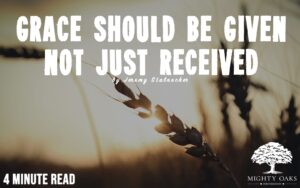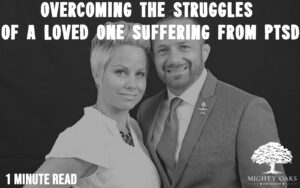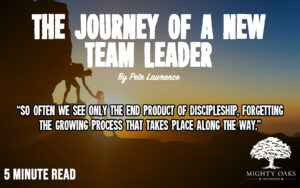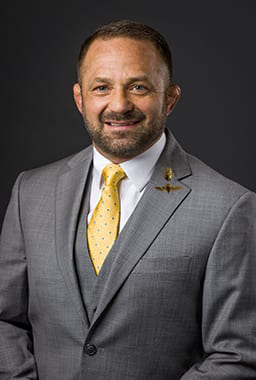 Founder Chad M. Robichaux’s new book, An Unfair Advantage, releases July 4th.
Founder Chad M. Robichaux’s new book, An Unfair Advantage, releases July 4th.
Take a journey with Force Recon Marine and Pro Mixed Martial Arts Champion Fighter, Chad Robichaux, as he shares a glimpse into the life of special operations, competition as a professional fighter, and deep insight into this world’s spiritual battles in which we are all engaged. Chad shares personal stories of both success and failure experienced in Afghanistan, the MMA cage, and his biggest fight of all… coming home and facing a struggle with PTSD, near divorce and almost becoming another veteran suicide statistic. Each chapter shares a parallel story of Biblical-time warriors who faced similar struggles and reveals An Unfair Advantage that led them to victory in the midst of those battles. Discover that same advantage for the battles you face and unlock the warrior spirit sewn in YOUR heart by God Himself.
Foreword by Lt. General “Jerry” Boykin
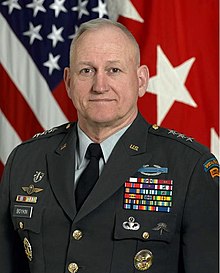 Uncle Eldon was always different from the rest of the Boykin men when I was growing up in rural North Carolina. As a youngster, I was always conscious of the fact that Eldon drank constantly, never seemed to have a job, and spoke frequently of things that made no sense to me or my cousins who were my age. Eldon often mentioned his visits to the Veterans Administration hospital in Durham, N.C., where they never seemed to be able to help him with his issues. He often came home from a hospital visit with more drugs to help him sleep, but nothing they gave him seemed to change his behavior, which was often characterized by a distant stare at nothing in particular. He frequently spoke of the “Ones who died,” but without context or a clear reference to exactly of whom he was speaking.
Uncle Eldon was always different from the rest of the Boykin men when I was growing up in rural North Carolina. As a youngster, I was always conscious of the fact that Eldon drank constantly, never seemed to have a job, and spoke frequently of things that made no sense to me or my cousins who were my age. Eldon often mentioned his visits to the Veterans Administration hospital in Durham, N.C., where they never seemed to be able to help him with his issues. He often came home from a hospital visit with more drugs to help him sleep, but nothing they gave him seemed to change his behavior, which was often characterized by a distant stare at nothing in particular. He frequently spoke of the “Ones who died,” but without context or a clear reference to exactly of whom he was speaking.
I was keenly aware that “Uncle” Eldon was actually my second cousin and was about my Dad’s age. I assumed that Eldon was simply different and that maybe the alcohol made him talk and act strangely. Finally, one day my grandmother casually mentioned that Eldon had been at Pearl Harbor when it was attacked. That grabbed my interest because I knew a little about the Japanese attack on December 7, 1941, but I was not well-versed on what had actually occurred on that “date which will live in Infamy.” So, I did two things that helped me understand my uncle better: I studied the attack on Pearl Harbor, and I questioned my dad about what Eldon had experienced. The first task was easy, as there were plenty of references available for my study. But when I asked Dad about what had happened to Eldon at Pearl Harbor, he was reluctant to discuss Eldon’s experience. It was as if this was a family secret that no one was eager to discuss, almost as if there was something shameful about what had occurred during Eldon’s time in the US Army of the Pacific. Confused, I sought out other family members who might be willing to give me the information I was seeking. Eventually, my dad’s oldest sister sat down with me and explained what had happened to Eldon on that Sunday morning in the Pacific when the Japanese attacked the US bases in Hawaii, thus bringing America into WWII.
My aunt Elizabeth was a registered nurse and a woman of considerable patience and great wisdom. She saw that my curiosity was sincere, and she judged that as a young teenager, I was at an appropriate age to understand the story she would tell me. She explained that on the morning of December 7, Eldon was a young sergeant tasked as “Charge Of Quarters” (CQ) for his company at Hickman Field, where US Army Air Corps airplanes were stationed. As the CQ, Eldon was responsible for alerting his fellow soldiers of any impending danger. The Japanese attack came so quickly and without warning that Eldon was first alerted when Japanese bombs began to fall on the airfield. He ran out of the Company Headquarters just as enemy bombs exploded along “Battleship Row” adjacent to Ford Island. Confused and desperate to do something to save the Foreword | xvii men in his company, Eldon ran toward the barracks where the men would be sleeping and relaxing on this Sunday morning. Before he could get to the men, many of them began to pour out of the barracks to see what was happening. As they did, Japanese airplanes strafed the company area, killing and wounding some of the men for whom Eldon felt responsible. He was devastated. Although he continued to run throughout the company area trying to get every man to his assigned battle station, it was too late; the Japanese attack was having a devastating impact on the men and aircraft at Hickman.
Eldon stayed in the US Army at Pearl Harbor until after the war, but he was never the same. He came home in September of 1945 and was soon classified as 100 percent disabled by the Veterans Administration due to “Combat Stress Reaction”. I had never heard that term. My aunt explained that it was used to identify people who had experienced horrible things in war that they could not deal with emotionally. She then looked me in the eye and said, “Jerry, they normally call his condition ‘shell shocked,’ which was first diagnosed during the first World War.”
Over the next few years, as I watched Eldon continue to slide into depression and drink himself to an early grave, the question in my mind was why no one could help him. There had to be someone who could help him to get beyond what he had experienced at Pearl Harbor and overcome his sense of failure because he could not save every man in his company.
Eldon was just one of tens of thousands of men who came out of the Second World War with the same issues and suffered the same fate. Since then, many who have experienced combat in every war or conflict have dealt with the depression, sleeplessness, and anger that accompanies their memories of combat. Sadly, many stories of these warriors end just as tragically as Eldon’s, with a life of alcohol or drug abuse. Some end even worse, as many have taken their own lives because of their inability to deal with the emotional stress brought on by their combat experience. Whether it is called Shell Shock, Combat Stress Reaction, Combat Fatigue, or Post Traumatic Stress Disorder (PTSD)—the most current term—it is a serious problem for many men and women returning from battle, destroying many lives and breaking up many families. The question is whether there is hope for our veterans, or are they simply destined to live depressed, angry, and confused lives?
The US Veterans Administration has received a great deal of criticism in recent years, with incredible stories of veterans having to wait months to get an appointment with a doctor and receive treatment for often life-threatening ailments. While much of this criticism is warranted, it is important to also remember that the number of vets needing care has increased exponentially since the events of September 11, 2001. The VA healthcare system is now treating an unprecedented number of PTSD cases at a time when suicides among vets is at an all-time high. Some estimates range as high as twenty-two vets per day taking their own lives. The burden on the VA system is almost overpowering. One of the consequences of this overload is frequently over-subscribing medications for people diagnosed with PTSD. Medicine certainly may be beneficial in dealing with PTSD, but there must be other things that can be more effective and enduring. How do we find those things that can help our PTSD victims to live better lives free of alcohol, drugs, and medications?
Chad Robichaux is one of those combat warriors who came home from war and struggled with the aftermath of his experiences. His marriage was in serious trouble, as were his relationships with others he cared about. Chad was not willing to accept that there was any enemy he could not defeat, especially one so ill-defined as PTSD. But the ultimate victory for Chad was not what he expected.
Chad is the epitome of a warrior. Not only is he a USMC Recon Non-Commissioned Officer, but he has been a police officer and is a well-known competitive Mixed Martial Artist. Chad is a tough guy with all the credentials to prove it. But he finally found an enemy that he could not overcome by just being stronger, faster, and tougher than the adversary. This time he was losing his match, and it was the most important one of his life with everything he cared about at stake. He tried everything he knew, but he was failing. There just had to be more. And there was. “Submission” was the answer.
But that is not a word that a cage fighter ever uses, unheard of, no way. How could that be the answer? The story of Chad’s struggle is one that brings hope to everyone who has been down the same path after returning to life after combat. Chad found the answer to PTSD, and today he and his wife have committed their lives to assisting others along the path to recovery and victory through their Mighty Oaks program. I have spent time with Mighty Oaks, and I can attest to its power and record of success. I wish that Eldon had found a program like this. Maybe his life would have been very different. You see, Chad struggled mightily until he submitted his future to God—every aspect of his life—and found victory. Getting to that point was not easy, but he finally became the man God wanted him to be, and now he helps others to overcome their struggles as a result of combat. I find his story to be compelling and incredible, and I know that many will be touched and helped by it. Let’s get this story out to those who need to hear it, to those who suffer the same challenges that Chad did.
— Lieutenant General “Jerry” Boykin US Army Special Forces (36 yrs. Retired)
Founding member of the elite US Army Delta Force
US Deputy Undersecretary of Defense for Intelligence
Executive Vice President of Family Research Council
Author, The Warrior Soul, The Coalition, Never Surrender, Danger Close
www.KingdomWarriors.net



